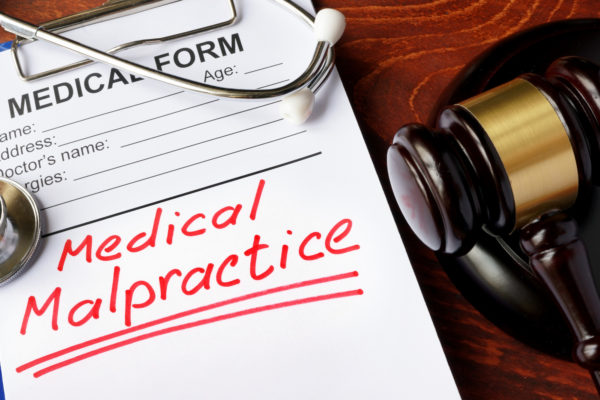Can You Sue for a Medical Misdiagnosis?

When you seek the advice of a health care professional and undergo medical testing, you likely assume that the diagnosis you ultimately receive will be correct. Unfortunately, that’s not always the case, but when do you have a case for medical malpractice from a misdiagnosis, and when is it considered part of the practice of medicine?
In a general sense, while there are a lot of variables, if a doctor doesn’t make both a timely and accurate diagnosis of a harmful medical condition, you might be able to file a lawsuit for medical malpractice. It’s certainly possible in medical situations that a doctor could have made a diagnosis to the best of their ability, and even if it were wrong, it would be legal medical negligence.
The following are some things to know.
Common Misdiagnosis Situations
There are certain scenarios that can lead to a delayed diagnosis or the wrong diagnosis. Examples include:
- Failure to screen for a disease or medical condition
- Not referring a patient to a specialist
- Misinterpreting lab results
- Not consulting a patient about their symptoms
- Not following up on the possible causes of symptoms
Misdiagnosis is one of the top reasons for patient deaths, and there are often thousands of patients in the U.S. alone each year that are misdiagnosed, or deal with delayed diagnosis or missed diagnosis.
Many patients who aren’t properly diagnosed also aren’t ever referred to anyone for a second opinion.
What Do You Have to Show?
With medicine, there is always a degree of uncertainty, which is why it’s called the “practice” of medicine. Legally doctors aren’t held responsible for all errors in diagnostics. For a patient who brings forth a malpractice suit, they would need to show three things.
First, you need to prove there was a doctor-patient relationship.
The second thing you need to show is that another doctor in a similar situation and a similar medical role or practice wouldn’t have made the same mistake your doctor made. That shows the doctor was potentially negligent if another doctor wouldn’t have missed the diagnosis in the same way.
The third thing you’ll need to prove is that the negligence of the doctor caused injury or harm to the patient.
Doctors are required to provide a duty of care to all patients, and if a doctor doesn’t meet the minimum standards, then they’ve breached that.
Conditions Commonly Misdiagnosed
Some of the most commonly misdiagnosed conditions include heart attack, cancer, asthma, diabetes, and stroke.
Other conditions misdiagnosed are stroke and chronic kidney disease.
When a person is misdiagnosed, or their diagnosis is delayed, it can increase the potential for complications, or expose them to risky treatments that aren’t necessary. It can also increase the risk of death or contribute to someone undergoing an unneeded surgery.
Was the Patient Harmed by the Misdiagnosis?
One of the main considerations to keep in mind with a medical malpractice lawsuit, whether it’s from a misdiagnosis or something similar, is that you’ll need to show some harm. If you can’t show this, it can weaken the potential for a successful lawsuit.
You need to be able to show that if a diagnosis had been made in a timely way, then the condition wouldn’t have progressed in the way that it did.
There are some rare cases in which a doctor may wrongly diagnose a person with something worse than what they have or something when they have nothing at all and you may be able to get damages for that as well if you can show it led to stress, anxiety, medical issues or unnecessary treatment.
Who Can Be Sued?
Typically if you were going to sue for a misdiagnosis, you would sue your primary doctor. In some cases, although rare, other professionals in the health care industry might be liable if their negligence played a role in the patient’s harm.
This could include any specialists, lab techs, and nurses who saw the patient.
A hospital or health care facility can’t be sued because doctors are independent contractors. Doctors aren’t employees of the hospital, so the facility can’t be held responsible if they are negligent.
If you or a loved one suffered as the result of a misdiagnosis or a delayed diagnosis, it might be worth having a conversation with a legal professional. It can be tough to prove in some instances, but if you can prove negligence led to harm you may be able to recover damages.
